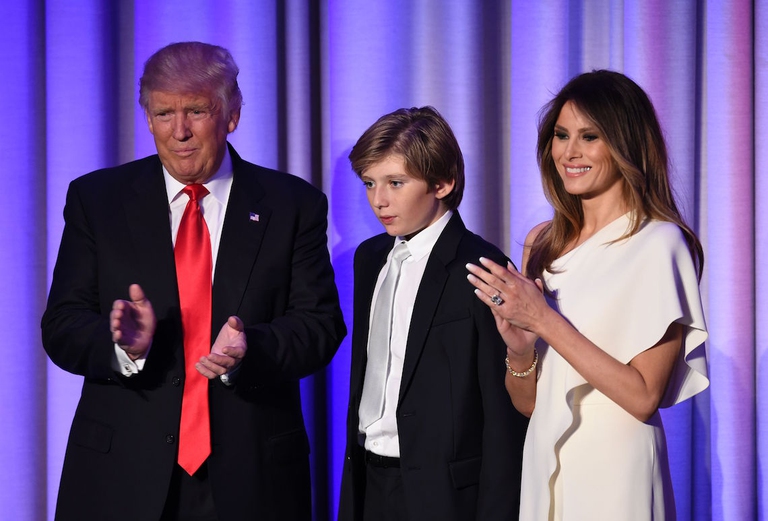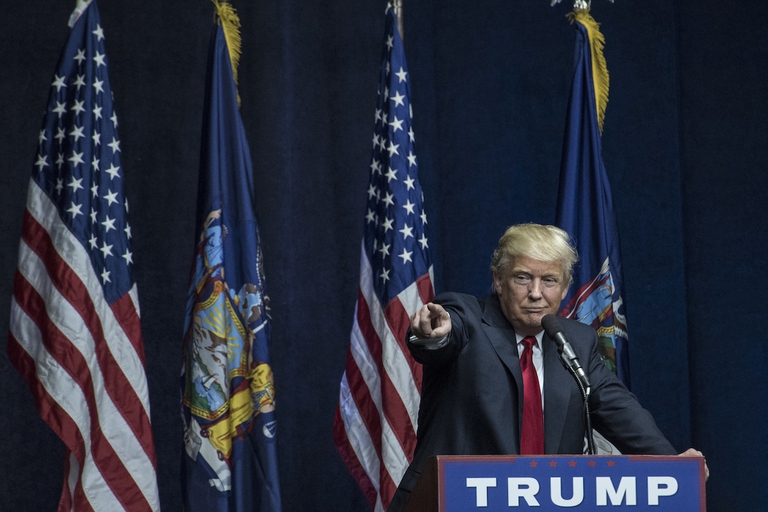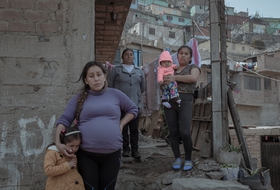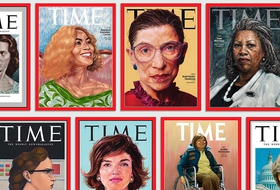
One in three women have suffered physical or sexual violence. With contributions from Europe, Africa, Asia and Latin America, we look at how this shadow pandemic affects every corner of the world.
“We’ll make America great again,” thundered Donald Trump in front of guests and journalists gathered in the luxurious Hilton Hotel in Midtown, New York City. It’s 02:40 Eastern time and the results reveal what no one thought was possible. The Republican candidate has overtaken the magic threshold of 270 electors voting in his favour, out of a total
“We’ll make America great again,” thundered Donald Trump in front of guests and journalists gathered in the luxurious Hilton Hotel in Midtown, New York City. It’s 02:40 Eastern time and the results reveal what no one thought was possible. The Republican candidate has overtaken the magic threshold of 270 electors voting in his favour, out of a total of 538 making up the electoral college. All of a sudden, silence befell the Democratic headquarters, only 13 blocks away, at the announcement of the Republican victories in Michigan and Wisconsin, states which became key over the course of the night after Trump won in Florida.
In the national exit poll: Who do you think is qualified to be president?
Trump 38%
Clinton 52%— Mark Murray (@mmurraypolitics) November 9, 2016
A turn of events that caught media and pollsters alike by surprise. And, perhaps, the whole world. It seemed almost impossible that the candidate, judged “the most inadequate in history” to lead the American superpower, would move into the White House starting from January. Though not the favoured candidate at the outset, he conquered all the key states, including Ohio and North Carolina.
The “October surprise”, as it has been called by American political experts, which has upset the elections over the course of the last month was FBI Director James Comey’s denouncing of Hillary Clinton‘s inappropriate use of a private server as Secretary of State in the email scandal, nicknamed mailgate, wa stain on the entire Democratic candidate’s campaign. A hard blow which, even though Comey himself announced the closing of the case only three days before the elections, damaged her inexorably.
Voter turnout tells a very clear story. Many Americans, unsatisfied with traditional politics, decided to vote for the outsider, a man avowedly against the establishment. An angry and silent America, which doesn’t get its information from classical US media, which doesn’t even recognise Fox News, traditionally the Republican mouthpiece. An American made up of women and especially men that chose a president far from the tones of politics-as-we-know-it, who chose a candidate that was able to collect votes basing his campaign on Americans’ most intimate fears: immigration, recession, the corruption of the political class.
Trump didn’t win. Racism won. Sexism won. Hate won. Lack of education won.
— Lisa Elaine (@LisaElaine9) November 9, 2016
The newly-elected president will be nominated officially on the 20th of January 2017. The agenda of the first 100 days was amply defined over the course of the past weeks. “First I will announce my intention to totally renegotiate NAFTA, one of the worst deals our country has ever made,” Trump said at the end of October, referencing the free trade agreement between the United States, Mexico and Canada. On the table is also the withdrawal of the TTP, the economic deal with the Pacific countries, strongly opposed by China but wanted by the administration of outgoing President Barack Obama. The President of the United States, in fact, has the power to rescind treaties. Thus the United States’ support for the recently ratified Paris Accords to combat climate change is at risk. “You could literally have a stack of executive orders on Donald Trump’s desk in the Oval Office that he could sign literally in his first hours of being president,” according to Stephen Moore, economic adviser to Trump. In Washington, Trump will find a Congress solidly controlled by Republicans that has successful in containing the Democratic advance. In this way, he won’t face opposition in the choice of the new Supreme Court judges, or in repealing the Obamacare health reform, pursuing an energy policy strongly oriented towards fossil fuels and enacting his proposals to stop immigration.
Siamo anche su WhatsApp. Segui il canale ufficiale LifeGate per restare aggiornata, aggiornato sulle ultime notizie e sulle nostre attività.
![]()
Quest'opera è distribuita con Licenza Creative Commons Attribuzione - Non commerciale - Non opere derivate 4.0 Internazionale.
One in three women have suffered physical or sexual violence. With contributions from Europe, Africa, Asia and Latin America, we look at how this shadow pandemic affects every corner of the world.
The Istanbul Convention against gender-based and domestic violence marks its tenth anniversary. We look at what it is, who its signatories are, and what the future might hold.
European Commission President Ursula von der Leyen reminded us of the gravity of violence against women around the world, and of the Istanbul Convention’s utmost importance.
President Erdoğan has pulled Turkey out of the Istanbul Convention, key in the fight against gender violence, claiming that it favours the LGBT community rather than family values.
Violence against women in Peru has increased as a result of Covid-19 lockdowns. 14,912 people were reported missing from January to November 2020, more than half of them minors and 64 per cent women. People have been confined to their homes for months, many forced to endure poor physical, economic and social conditions. A situation that
Joys Estefani Qqueccaño Huamani, 24, disappeared from her rural community in Peru on 9 October. Her family began looking for her independently of the authorities and despite the resistance of relatives of Joys Estefani’s ex-partner Arturo Ccana Condori, 32, charged with committing violence against her on 28 September, eleven days before Joys Estefani disappeared. Photos
Costa Rica celebrated its first same-sex marriage when two women, Alexandra Quiros and Dunia Araya, celebrated their wedding: an “extraordinary moment”.
The pandemic and its restrictions are affecting everyone, without exceptions. However factors like housing, income inequalities, gender, access to technology and working conditions are influencing how people experience the health crisis.
Time magazine’s 100 Women of the Year project sheds light on influential women’s stories, from Amelia Earhart to Greta Thunberg. A selection of some of the greats for International Women’s Day.









